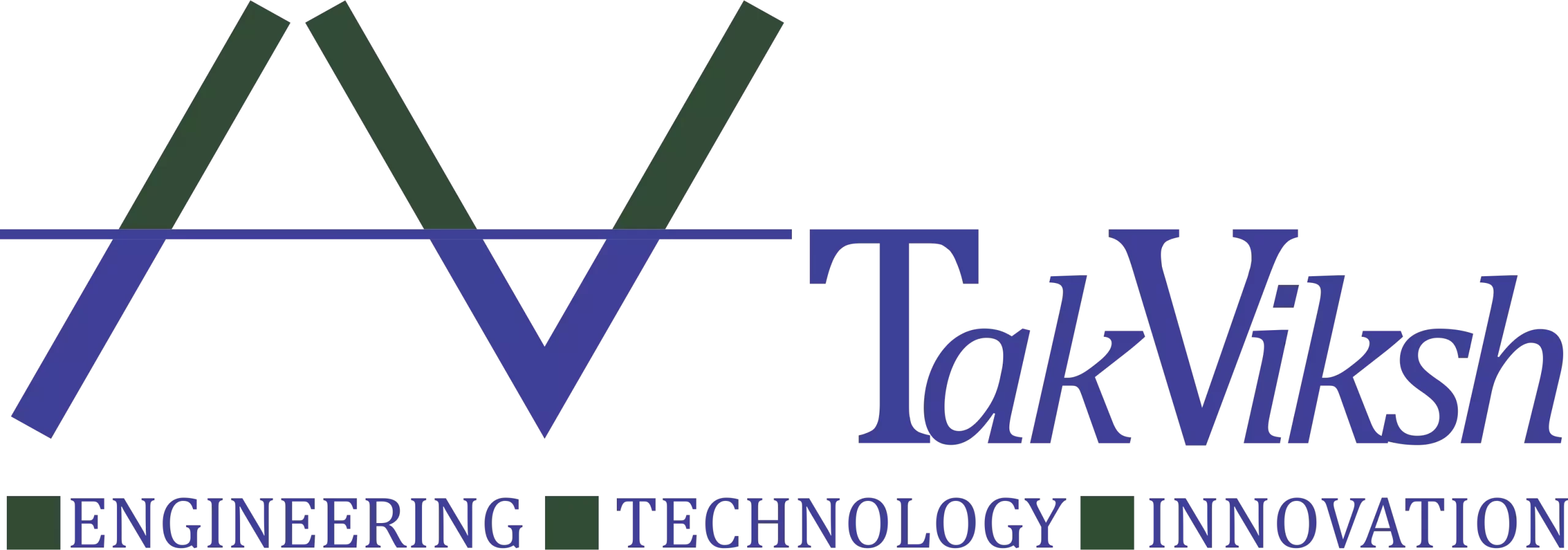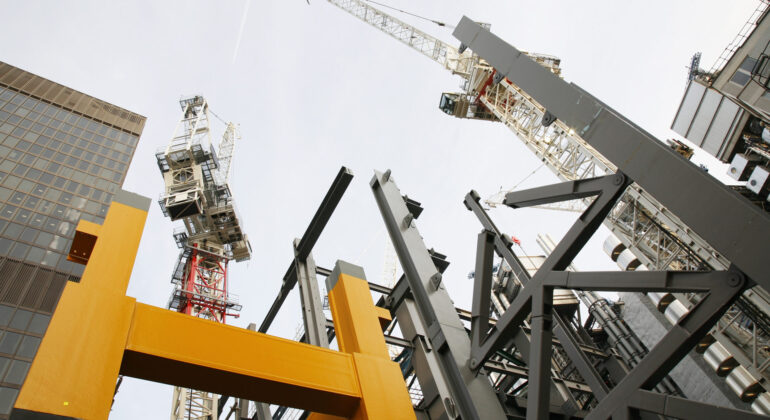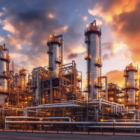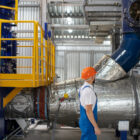The construction industry is undergoing a transformative shift as sustainability becomes a key focus. This change is particularly evident in Engineering, Procurement, and Construction (EPC) projects, where integrating eco-friendly practices is not just a trend but a necessity. TakViksh Engineering, a pioneer in this field, is at the forefront of this transformation, offering solutions that prioritize environmental responsibility, energy efficiency, and the use of renewable energy. In this blog, we’ll explore the future of sustainable construction in EPC projects, highlighting key elements like green building certifications, energy-efficient designs, and renewable energy integration. We’ll also showcase some successful projects by TakViksh Engineering that set the standard for sustainable practices.
The Importance of Sustainability in Construction
Sustainability in construction means designing, building, and operating structures in a way that minimizes environmental impact, conserves resources, and promotes a healthy living environment. This approach is crucial for several reasons:
- Environmental Impact: The construction industry is a significant contributor to greenhouse gas emissions, resource depletion, and waste generation. By adopting sustainable practices, we can reduce these impacts and protect the planet.
- Economic Benefits: Sustainable buildings often have lower operating costs due to reduced energy and water usage. They also tend to have higher property values and better marketability.
- Social Responsibility: Sustainable construction promotes the health and well-being of occupants and communities. It ensures that buildings are safe, healthy, and comfortable to live and work in.
Green Building Certifications: A Benchmark for Sustainability
Green building certifications are essential tools for measuring and validating the sustainability of construction projects. Certifications like LEED (Leadership in Energy and Environmental Design), BREEAM (Building Research Establishment Environmental Assessment Method), and IGBC (Indian Green Building Council) set standards for energy use, water conservation, indoor air quality, and other environmental factors.
How TakViksh Engineering Incorporates Green Certifications:
- LEED Certification: TakViksh Engineering has extensive experience in guiding projects through the LEED certification process. This involves careful planning and implementation of strategies to meet LEED criteria, such as energy-efficient lighting, water-saving fixtures, and the use of sustainable building materials.
- BREEAM Certification: For projects in international markets, BREEAM certification is often pursued. TakViksh Engineering works closely with clients to ensure that buildings meet the stringent environmental performance standards required by BREEAM, focusing on lifecycle impact, pollution reduction, and ecological enhancement.
- IGBC Certification: In India, IGBC certification is a widely recognized standard. TakViksh Engineering helps clients achieve this certification by integrating sustainable site development, water conservation, energy efficiency, and sustainable building materials into their projects.
Energy-Efficient Designs: The Heart of Sustainable Construction
Energy efficiency is a cornerstone of sustainable construction. It involves using less energy to perform the same tasks, reducing the overall energy consumption of a building. This can be achieved through various strategies, including:
- Insulation and Air Sealing: Proper insulation and sealing of buildings can prevent heat loss in winter and heat gain in summer, reducing the need for heating and cooling.
- Efficient HVAC Systems: Heating, ventilation, and air conditioning (HVAC) systems are among the largest energy consumers in buildings. Using high-efficiency systems and optimizing their operation can significantly reduce energy use.
- Energy-Efficient Lighting: Switching to LED lighting and incorporating natural daylighting strategies can reduce electricity consumption and improve indoor comfort.
- Smart Building Technologies: Integrating smart technologies like automated lighting, HVAC controls, and energy management systems can optimize energy use based on real-time data.
TakViksh Engineering’s Approach to Energy Efficiency:
At TakViksh Engineering, we prioritize energy efficiency in all our projects. We conduct detailed energy modelling during the design phase to identify the most effective strategies for reducing energy consumption. Our team of experts ensures that buildings are designed to maximize natural light and ventilation, minimize heat gain and loss and utilize energy-efficient systems and materials.
The Integration of Renewable Energy
Renewable energy sources, such as solar, wind, and geothermal, play a crucial role in reducing the reliance on fossil fuels and lowering carbon emissions. Incorporating these energy sources into construction projects is an effective way to improve sustainability.
- Solar Energy: Solar panels can be installed on rooftops or integrated into building facades to generate electricity. This renewable energy source is particularly effective in sunny regions and can significantly reduce electricity bills.
- Wind Energy: In areas with consistent wind patterns, wind turbines can be used to generate electricity. While not as common as solar, wind energy can be a viable option for certain projects.
- Geothermal Energy: Geothermal systems use the earth’s natural heat to provide heating and cooling. This technology is energy-efficient and environmentally friendly, making it an excellent choice for sustainable construction.
TakViksh Engineering’s Renewable Energy Solutions:
TakViksh Engineering has extensive experience in integrating renewable energy systems into construction projects. Our team evaluates the site conditions and energy needs to recommend the most suitable renewable energy solutions. We have successfully implemented solar power systems in several projects, including industrial plants and commercial buildings. Additionally, we have explored the use of wind and geothermal energy in specific cases, providing clients with comprehensive, sustainable energy solutions.
Case Studies: Successful Sustainable EPC Projects
Case Study 1: Energy-Efficient Chemical Plant
One of TakViksh Engineering’s standout projects is the design and construction of a chemical plant that achieved remarkable energy efficiency. The project involved:
- Solar Power Installation: Solar panels were installed on the plant’s roof, providing a significant portion of the facility’s electricity needs.
- Advanced HVAC System: A state-of-the-art HVAC system was implemented, reducing energy consumption while maintaining optimal indoor air quality.
- Efficient Process Equipment: The plant utilized energy-efficient machinery and equipment, minimizing energy use during operations.
The result was a facility that not only met but exceeded energy efficiency standards, resulting in substantial cost savings and a reduced carbon footprint.
Case Study 2: Sustainable Wastewater Treatment Facility
Another notable project was the development of a wastewater treatment facility focused on sustainability. Key features included:
- Water Recycling: The facility incorporated advanced filtration and treatment technologies to recycle wastewater, significantly reducing water consumption.
- Renewable Energy Integration: Solar panels were used to power parts of the facility, while energy-efficient pumps and equipment minimized overall energy use.
- Eco-Friendly Materials: The construction utilized recycled and sustainable materials, contributing to the facility’s overall environmental performance.
This project not only demonstrated the feasibility of sustainable wastewater treatment but also set a benchmark for future projects in the industry.
Conclusion
The future of EPC in sustainable construction is promising, with a growing emphasis on eco-friendly practices and technologies. TakViksh Engineering is committed to leading this change, providing innovative solutions that prioritize sustainability, energy efficiency, and the use of renewable energy. By adopting these practices, we not only contribute to environmental conservation but also offer economic benefits and improve the quality of life for communities. As the industry continues to evolve, TakViksh Engineering will remain at the forefront, driving the adoption of sustainable practices and setting new standards for excellence in EPC projects. We invite you to join us in this journey toward a more sustainable and resilient future.








Recent Comments